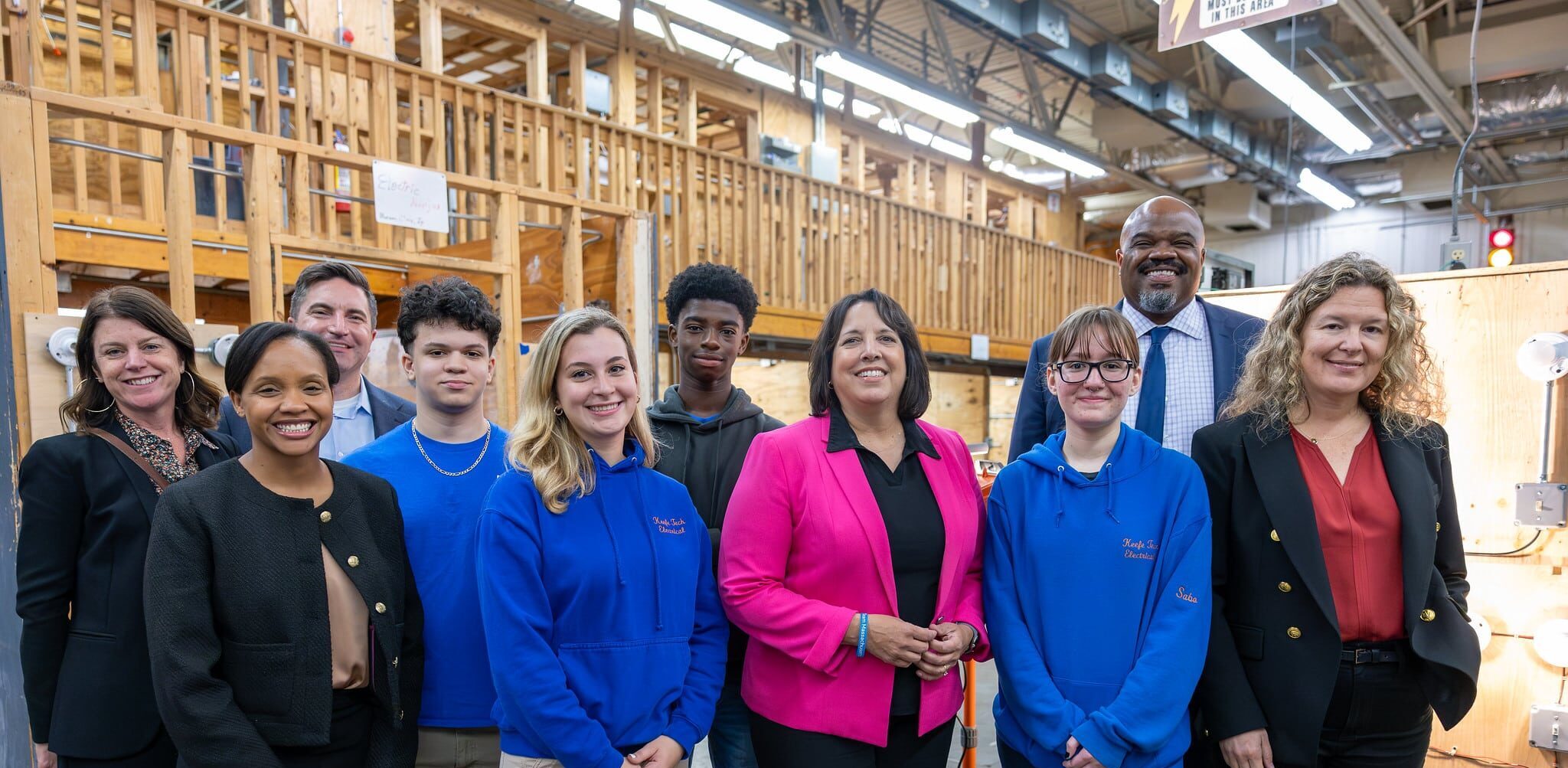The Healey-Driscoll Administration today celebrated a new collaboration with the state’s Workforce Skills Cabinet, Commonwealth Corporation Foundation and the GE Vernova Foundation, awarding $600,000 in grant funding for programs within the Career Technical Initiative (CTI) dedicated to training and preparing the clean energy workforce in Massachusetts.
Lieutenant Governor Kim Driscoll, Labor and Workforce Development Secretary Lauren Jones, Education Secretary Patrick Tutwiler, Economic Development Undersecretary Sarah Stanton, and Senate President Karen Spilka made this announcement with the GE Vernova Foundation at the Keefe Regional Technical School in Framingham as part of Massachusetts STEM Week. The grant funding will upgrade technology and instructional lab spaces for schools and institutions in the CTI program focused on job training in solar, wind, or heat pump installation and maintenance.
“The clean energy sector presents enormous opportunities for Massachusetts’ economy and workforce – but we need tens of thousands more skilled workers to meet this moment,” said Governor Maura Healey. “Our administration is proud to partner with the business community to support schools with purchasing modernized equipment to ensure students are trained with the skills are in demand in today’s clean energy economy.”
“These investments will ensure that people entering the workforce have skills that are needed to fill jobs critical to the clean energy transition,” said Lieutenant Governor Kim Driscoll. “These grants are a win-win for Massachusetts’ students, schools, employers and local communities.”
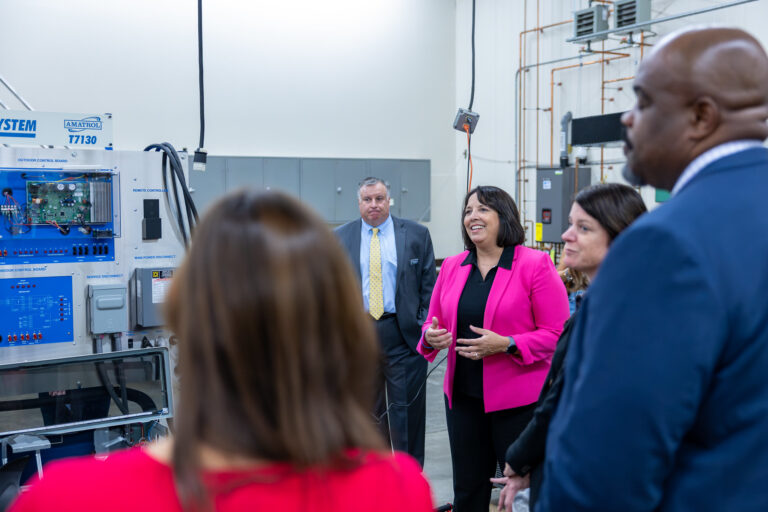
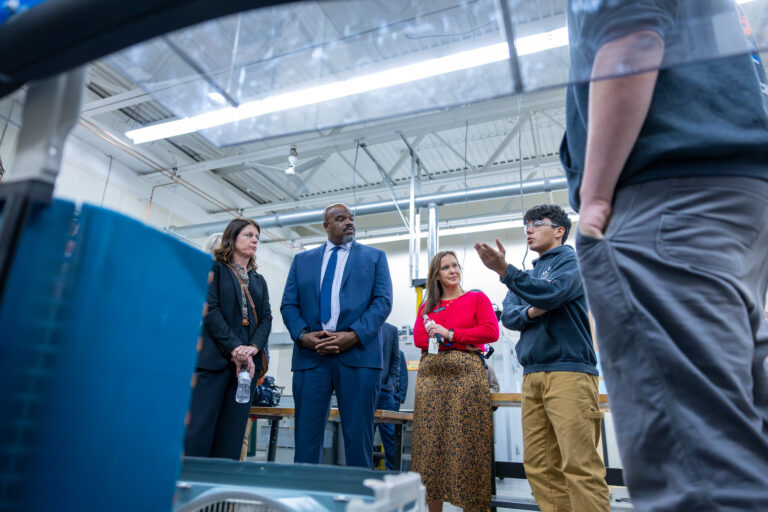
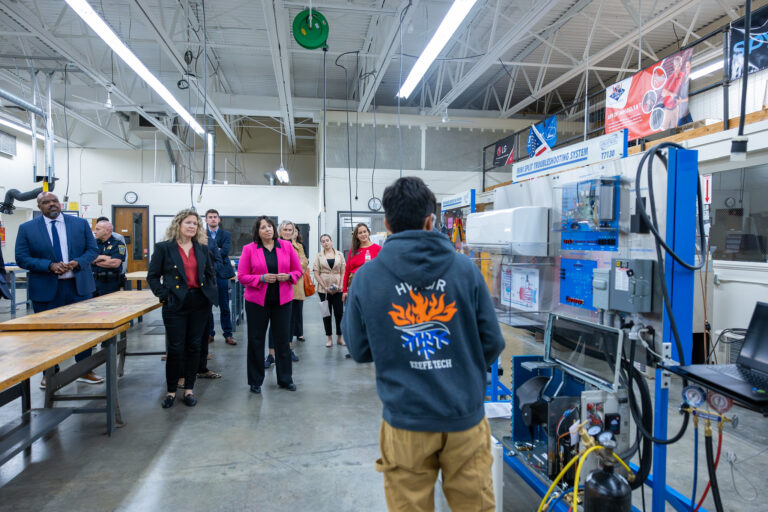
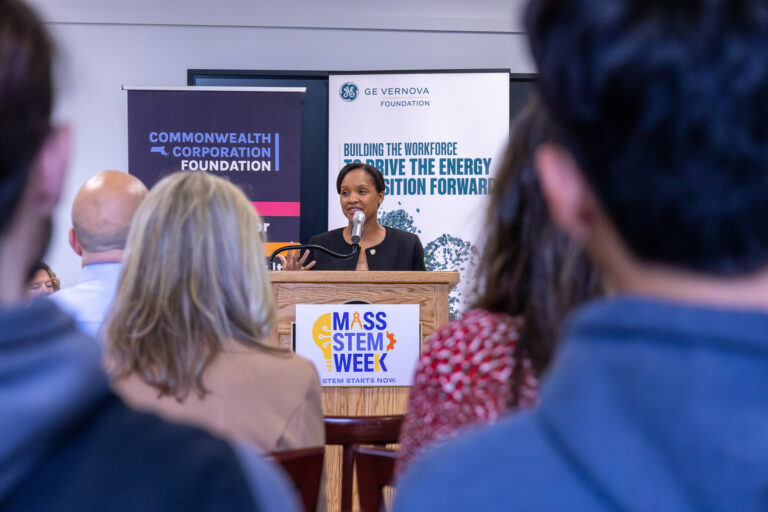
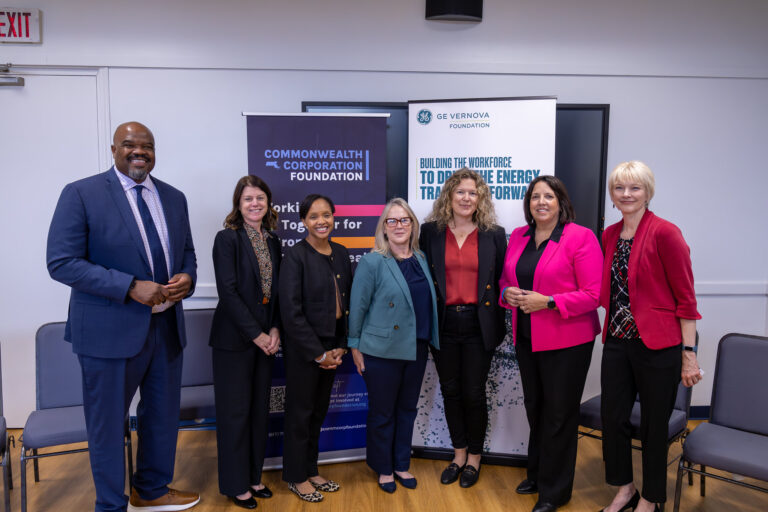
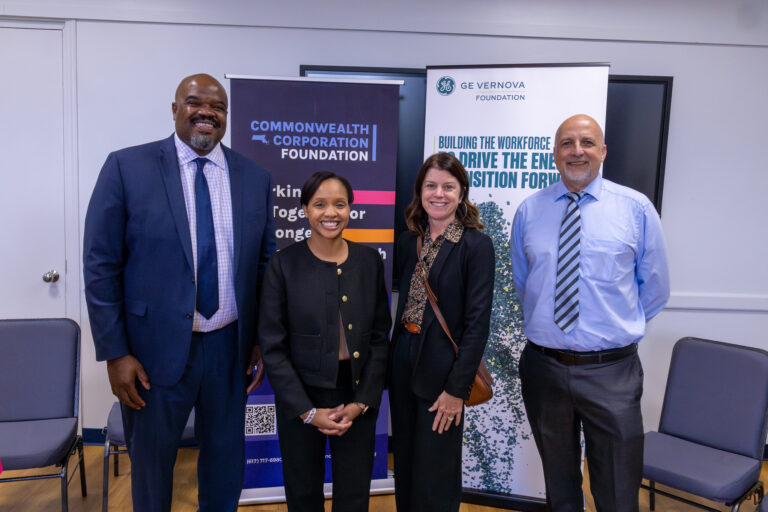
The Commonwealth Corporation Foundation secured funding for the grants through a $300,000 award from the GE Vernova Foundation, with $300,000 in matching funds committed from the Workforce Skills Cabinet, which includes the Executive Offices of Labor and Workforce Development, Education, Economic Development, and Health and Human Services. The Commonwealth Corporation Foundation, a 501(c)(3) non-profit, works to bridge resource gaps to target unmet needs in workforce development and by empowering workers and employers in Massachusetts through strategic partnerships with the business community, organized events, and grant-making.
“Commonwealth Corporation Foundation is demonstrating opportunities to leverage engagement with funders and enhance our efforts to build a strong workforce in Massachusetts,” said Secretary of Labor and Workforce Development Lauren Jones. “The Workforce Skills Cabinet values partnerships like this, recognizing multiple strategies are needed to build the talent we need for a sustainable and clean future.”
“The Healey-Driscoll Administration has been focused on increasing the number of students prepared to build and enter a diverse clean energy workforce. I am pleased that during STEM week, we are able to announce additional funding to schools and institutions to upgrade technology and lab spaces in solar, wind, and heat pump installation and maintenance. This funding will provide students with access to the latest technology in their training and education, setting them up for employment in today’s economy and supporting the state’s climate goals,” said Education Secretary Dr. Patrick Tutwiler.
This grant funding will help CTI programs by providing training equipment and allowing those programs to choose their equipment based on the needs and demands of the employers in the region. Additionally, the equipment will allow for professional development training for both CTI and Career and Technical Education school staff. CTI transforms career and technical education schools across the state to become “Career Technical Institutes” that run three shifts a day for skill-building programs, providing adult learners, especially unemployed and underemployed individuals from underserved populations and underrepresented groups, with career training and technical skills to meet the needs of Massachusetts employers.
“Addressing the climate crisis means an all-hands-on deck approach, and today we are making investments to add more people to the fight and build our resilience statewide,” said Senate President Karen E. Spilka (D-Ashland). “At the same time, growing our clean energy future and creating a green economy creates enormous potential for new well-paying jobs, meaningful careers, and the growth of a new economic engine in our state—but we need our students and workers to be ready through comprehensive training. I applaud the Healey-Driscoll Administration for their leadership and collaboration with businesses, nonprofits, and our community, and look forward to Massachusetts continuing to lead the global fight against climate change.”
“The skilled trades are playing a vital role in building a sustainable energy future,” said Kristin Carvell, GE Vernova Foundation President. “That is why the GE Vernova Foundation is committed to pioneering programs focused on the workforce needed to invent, build, and maintain our energy infrastructure and the new technologies that are so important to driving the energy transition forward.”
“The CTI program provides after-dark training for Massachusetts residents in the skilled trades that are critical to building the clean energy transition workforce,” said Alanna Mallon, Executive Director, Commonwealth Corporation Foundation. “The sheer number of workers needed to help us achieve our climate goals necessitates public-private partnerships. This committed funding from the GE Vernova Foundation for hands-on learning equipment and matching State funding exemplifies how we can catalyze private investments and enhance the impact of our clean energy workforce development efforts.”
“Thank you to the Healey-Driscoll Administration for their leadership in workforce development and to the GE Vernova Foundation for their generous support,” said Molly Jacobson, President and CEO of Commonwealth Corporation. “This announcement represents a significant investment in our clean energy future and highlights the critical role of CTI in preparing skilled workers for our STEM industry. By enhancing our training programs, we are not only preparing our workforce for but also contributing to the broader goal of a sustainable Massachusetts economy.”

